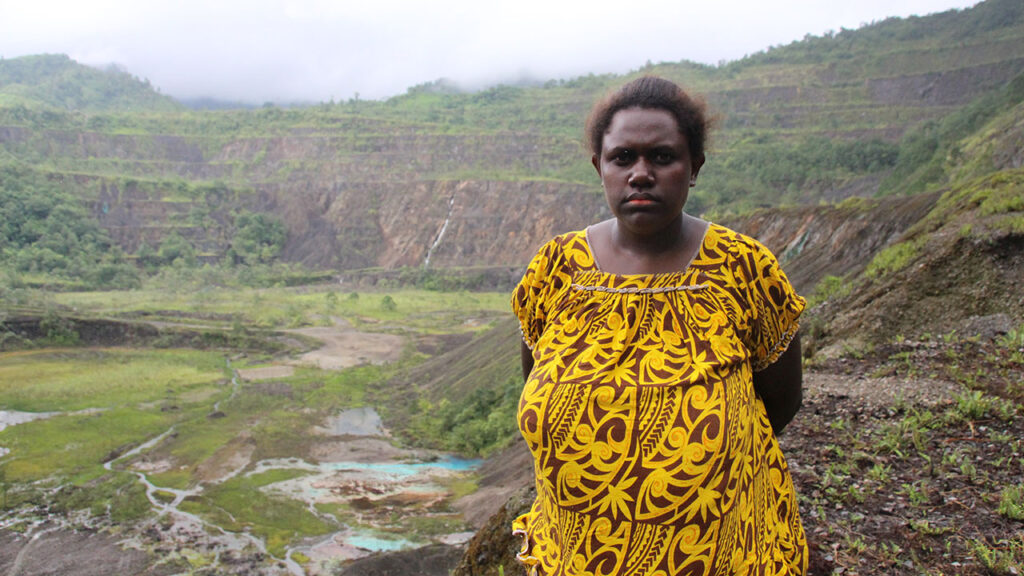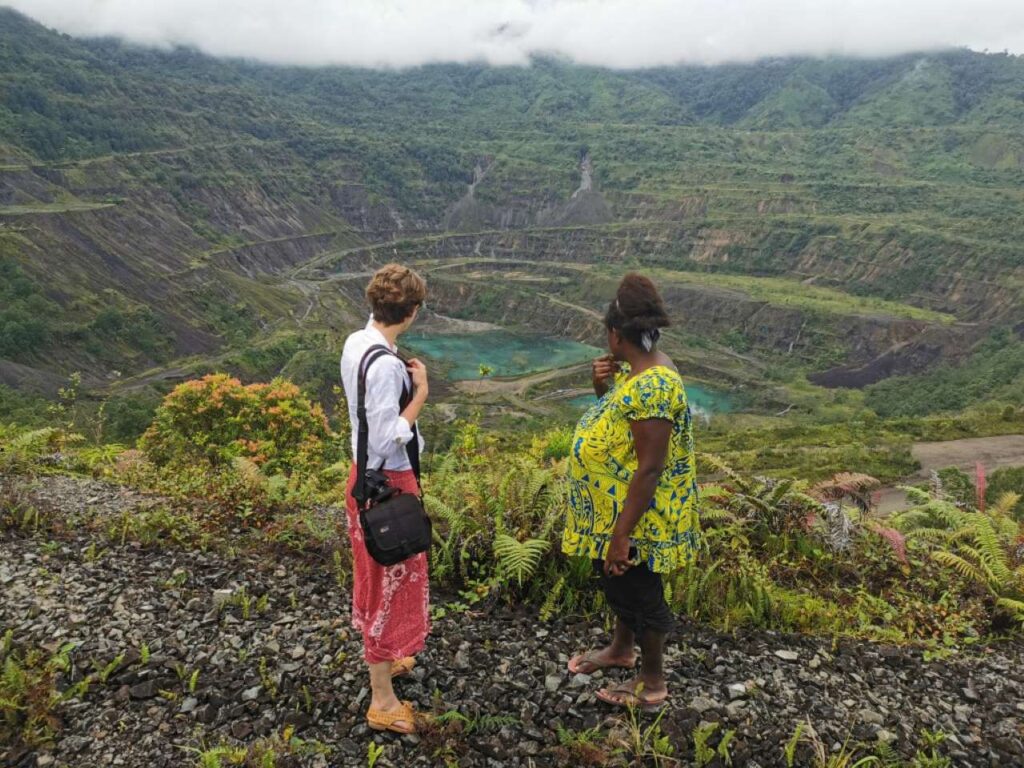Historic environmental and human rights assessment of Rio Tinto’s former Panguna mine begins
A historic independent environmental and human rights legacy impact assessment of Rio Tinto’s former Panguna mine will begin in Bougainville this week.
Last year, Rio Tinto publicly committed to fund the independent assessment in response to a human rights complaint brought by 156 local community members, represented by the Human Rights Law Centre.
The human rights complaint alleges that the massive volume of mine waste pollution left behind by Rio Tinto’s Panguna mine is putting communities’ lives and livelihoods at risk.
Over a billion tonnes of waste tailings were released directly into the Jaba and Kawerong rivers during the operation of the Panguna mine between 1972 and 1989. Pollution from the mine continues to contaminate the rivers and flood large areas of land downstream, which is having devastating impacts on the lives of thousands of Bougainvilleans.
The Legacy Impact Assessment is being overseen by a Committee comprised of community leaders, landowners, government representatives, the Human Rights Law Centre and representatives from Rio Tinto and Bougainville Copper Limited.
Committee member and traditional landowner Theonila Roka Matbob, who is also the member of parliament for the area where the mine is located:
“This is an important step towards addressing insecurity and pain for the people in the impacted community areas. Thus, we welcome the assessment into the impacts of the Panguna mine as soon as possible.
“We are always worrying that the food we eat, the water we drink and the air we breathe is not safe. We worry about levees collapsing and mine waste flooding our lands and communities. We need the environmental and human rights assessment to look into this. It cannot come soon enough.
“We welcome Rio Tinto’s commitment to this process. We really need Rio to continue its support and commit to funding the next steps.”
Keren Adams, Legal Director at the Human Rights Law Centre:
“Clean water is something so many of us take for granted. But for communities in Bougainville devastated by Rio Tinto’s Panguna mine, it is far from a reality.
“This is a long-overdue investigation into the devastating pollution from the Panguna mine which local people are living with every day. Having seen the scale of the dangers first hand, this work can’t start soon enough.
“We are encouraged that Rio Tinto has taken this important step and with its constructive engagement in the process so far. But this is only the first step. This will help identify the problems but ultimately Rio Tinto needs to commit to funding the solutions so that communities can live on their land safely.
“Communities urgently need access to clean water for drinking and bathing. They need solutions to stop the vast mounds of tailings waste eroding further into the rivers and flooding their villages, farms and fishing areas. Children need to be able to walk to school without having to wade through treacherous areas of quicksand created by the mine waste. This is what remediation means in real terms for people living with these impacts.”
Background:
Panguna was formerly one of the world’s largest copper and gold mines. During its operation from 1972 to 1989, over a billion tonnes of waste tailings from the mine were released directly into the Jaba and Kawerong rivers. In 1989, an uprising by local people against this environmental destruction and inequities in the distribution of the mine’s profits forced it to stop operating and triggered a brutal decade-long civil war.
In September 2020, 156 residents from villages downstream of the Panguna mine, represented by the Human Rights Law Centre, filed a complaint against Rio Tinto with the Australian National Contact Point for Responsible Business Conduct. The complaint alleges that the mine is causing major ongoing environmental problems and human rights violations.
Tetra Tech Coffey, an independent global consulting company, will undertake the Legacy Impact Assessment. The first phase of the work, which will examine acute impacts and risks posed by the mine to communities, is expected to take 18-20 months. It will identify mine-related impacts and what needs to be remedied.
The Legacy Impact Assessment is being funded by an independent company, with the majority of the company’s funding provided by Rio Tinto. Rio Tinto’s former subsidiary Bougainville Copper Ltd (BCL), which operated the mine, is separately contributing to the costs.
Rio Tinto has not yet committed to funding the clean-up and remediation of the mine site that communities are calling for. Following the conclusion of the impact assessment, further discussions will be held between the company, community representatives and other stakeholders regarding the assessment’s recommendations and next steps.
READ: Human Rights Law Centre’s 2020 report After the mine: Living with Rio Tinto’s deadly legacy
READ: The Human Rights Complaint filed by the communities here.
READ: Media release from the Oversight Committee
Media contact:
Thomas Feng, Media and Communications Manager, 0431 285 275, thomas.feng@hrlc.org.au

Bougainville community leaders demand seat at the table in remediation discussions with Rio Tinto
Bougainville community leaders are calling for a seat at the table in discussions about the potential remediation of the environmental devastation caused by Rio Tinto’s former Panguna mine, scheduled to begin in Port Moresby today.
Read more
Major environmental damage and human rights impacts to Bougainville communities confirmed by independent investigation into Rio Tinto’s former Panguna mine
Communities living with the ongoing devastation from Rio Tinto’s former Panguna mine in Bougainville are calling on the company to commit to funding remediation and addressing public safety risks, after a major independent investigation funded by the company confirmed life-threatening, ongoing social, environmental and human rights impacts from the mine.
Read more
Reforms to modern slavery law welcome but need to go further to protect workers’ rights
Civil society groups and unions have welcomed proposed changes to strengthen Australia’s modern slavery law, including through the introduction of penalties, but are calling on the Albanese Government to also introduce a legal requirement for companies to take action to prevent modern slavery.
Read more


